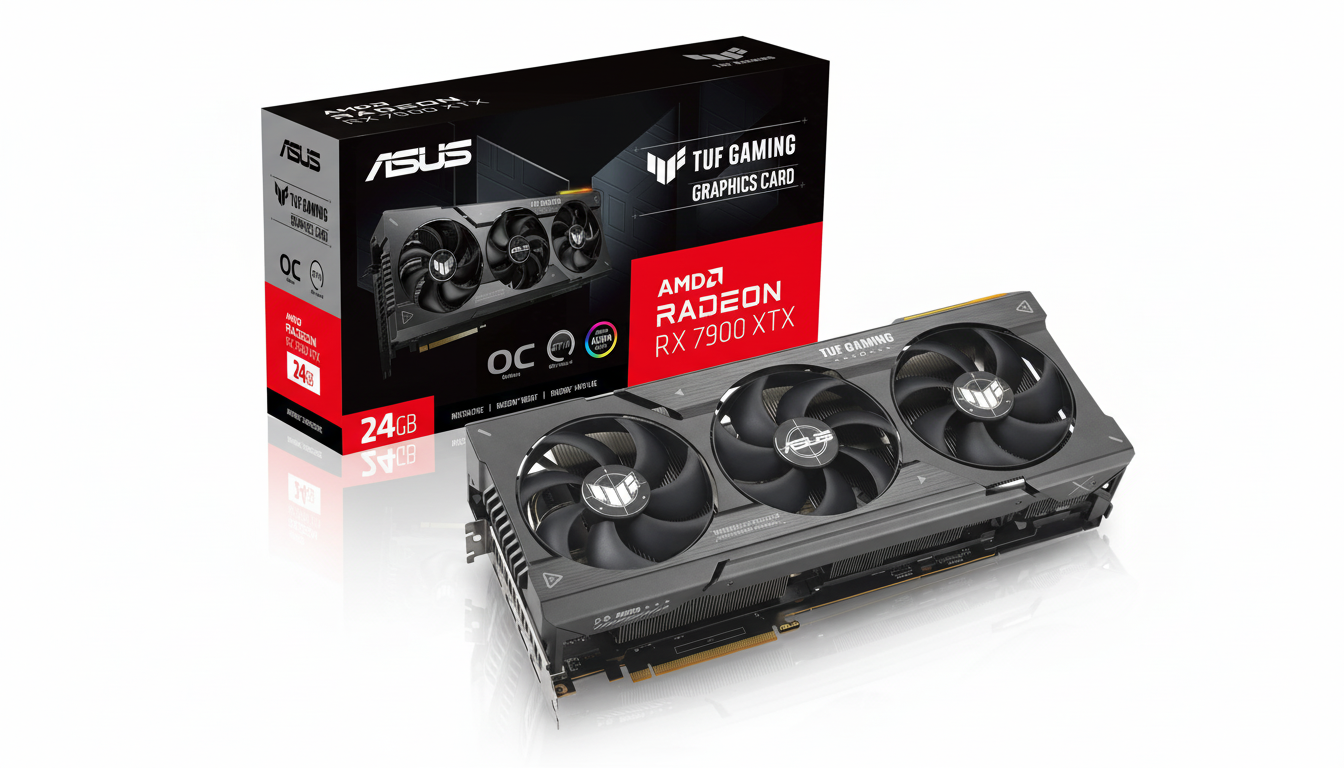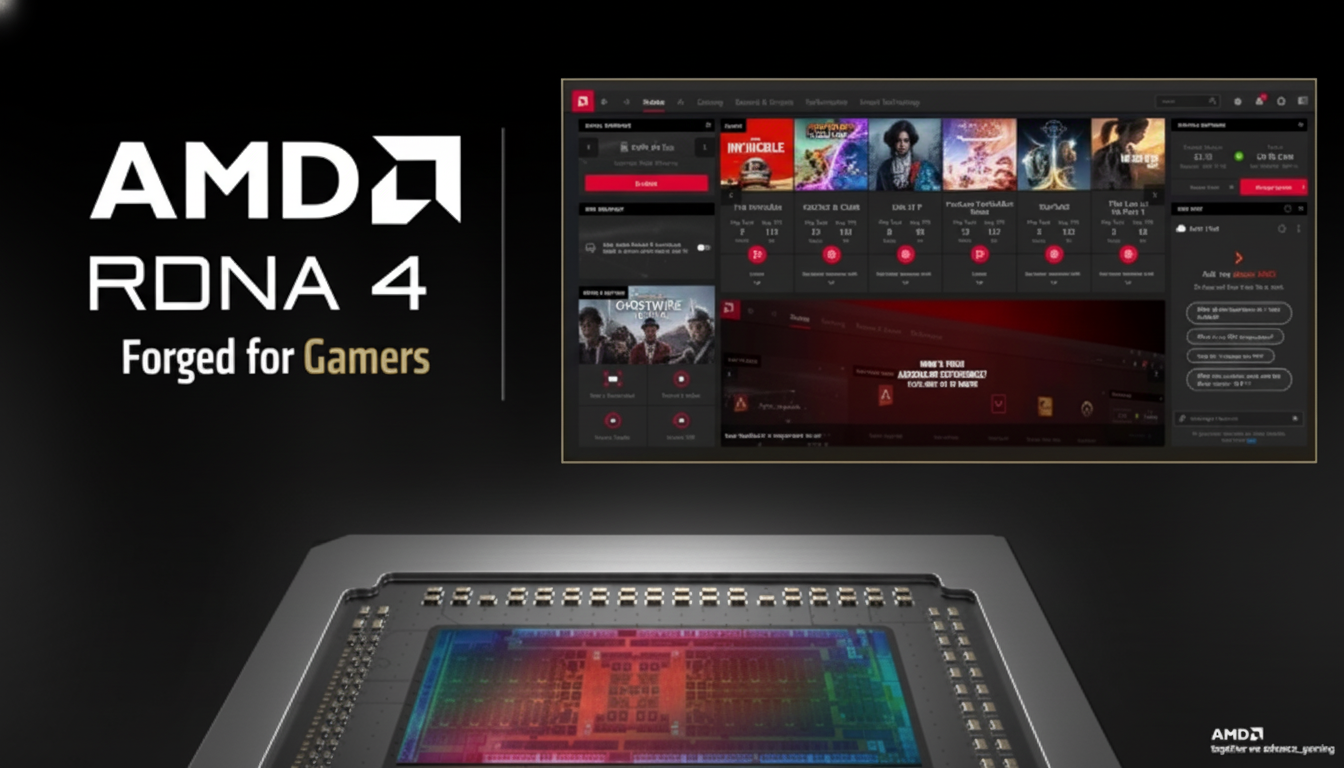AMD’s latest Adrenalin driver divides support for new and older Radeon GPUs, removing day-0 game optimizations and an expanded set of Vulkan features from RX 6000 and RX 5000 owners. The update also turns off USB-C power delivery on RX 7900 cards, leaving more questions about AMD’s driver strategy and long-term support commitments.
A new package has been released, as reported by Tom’s Hardware. It contains two distinct installers: version 25.20 for RDNA 3 and RDNA 4, and version 25.10 for older architectures. According to AMD’s release notes, “New Game Support” and expanded Vulkan extensions are only available for the RX 7000 and RX 9000 families. In other words, RDNA 2 and RDNA 1 receive the baseline 25.10 drivers.

The combined download is about 1.56 GB, and while it’s reasonable that it might take longer to install two major drivers than one, community reports indicate a rocky launch, with the wrong driver being briefly posted before being fixed. A VideoCardz report indicates that it’s unclear why AMD split the feature set in this fashion.
Older Radeon cards lose day-0 optimizations and Vulkan updates
Day-0 optimizations can include the following, which often translate into a modest uplift (typically 3–8% in early testing) and cleaner frametime consistency for new releases:
- Shader compiler tweaks
- Specific game profiles
- Stability fixes
Without those profiles, RX 6000 and RX 5000 series users might see slightly lower performance or more variability in certain titles before patches or more thorough driver changes reach the public.
There is also the Vulkan angle; broadened extensions are becoming more relevant across modern engines, emulators, and ports. Withholding these updates for newer cards could unnecessarily limit feature parity in edge cases. RDNA 2, which powers the RX 6000 line, remains common; multiple RX 6000 models have gone in and out of the top 25 frequently reported AMD GPUs in the Steam Hardware Survey. An argument could be made that this should have been included, especially among players targeting popular AAA or Vulkan-heavy workloads.

USB-C power delivery disabled on Radeon RX 7900 series
In a surprising move, the driver disables USB-C power delivery for RX 7900 series cards, including the RX 7900 XT and RX 7900 XTX models. If RX 7900 XT and XTX users rely on this functionality, they should keep using Adrenalin 25.3.1.
Display-capable USB-C never went mainstream on GPUs; even Nvidia’s VirtualLink experiment did not last long after the RTX 2000 generation. There are still plenty of display or single-cable monitor users leveraging the port in some fashion, however, even without this driver limitation. RX 9000 cards don’t include USB-C at all, so this primarily affects existing 7900 users.
Split drivers raise questions about AMD’s long-term support
AMD didn’t say if this means the split is permanent or if it’s due to the unique status of this launch cycle. The company has supported its GPUs for years beyond their initial release; RDNA 2 is still quite the kitten by PC standards. For example, Nvidia’s current Game Ready drivers still include older families dating back to the GTX 700 series and retain support for VirtualLink on Turing, a feature that Nvidia diminished before killing it.
Segmented branches can simplify a driver deployment if the underlying compiler paths and scheduling need to be managed differently across architectures, but users often expect all GPUs on a platform to receive equivalent day-0 support. Without an explicit roadmap for its hardware, AMD’s decision to split the stack looks like a scenario where RDNA 3 and RDNA 4 get new features and optimizations while RDNA 2 and RDNA 1 get maintenance-level updates.
What Radeon owners should do before installing new drivers
- If you own an RX 6000 or RX 5000 card and buy into new releases, test the new driver against your current install to see which one behaves better in your specific games.
- Watch release notes for any profiles or bug fixes that get sluiced back for older hardware.
- If you own an RX 7900 and rely on USB-C power, hold onto Adrenalin 25.3.1 as AMD recommends until power delivery is restored.
The short of it is that the latest Adrenalin driver prioritizes RDNA 3 and RDNA 4 with new game support and Vulkan extensions while treating RDNA 2 and RDNA 1 as maintenance stacks. Until AMD publishes a publicly available roadmap, RX 6000-series owners should expect fewer day-0 perquisites and plan their updates accordingly.

